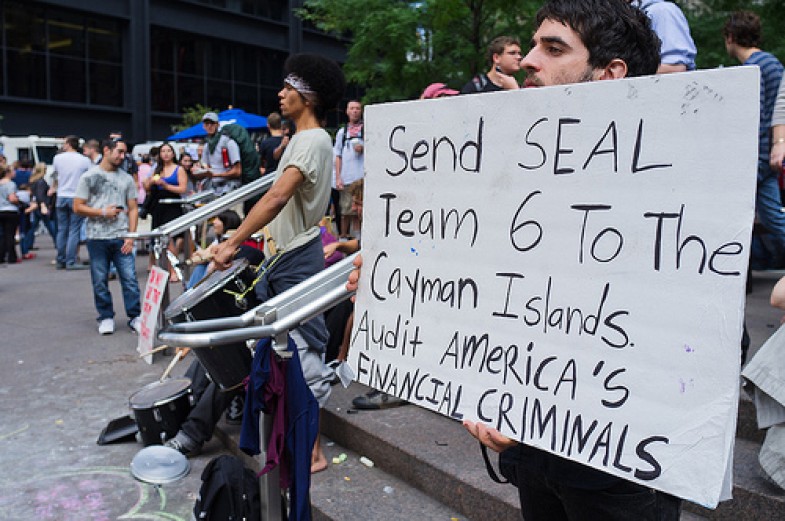This week will be an exceptional one.
It will mark a decade at war and the beginning, perhaps, of a sustained, cross-issue, multi-generational struggle to create real change in this country we care so much about.
Take a moment to wrap your mind around what has happened over a few short months: The movement to protect collective bargaining and worker rights that started in Madison; 350.org’s world-wide Moving Planet events; the Tar Sands Action in front of the White House; occupywallstreet and occupytogether; and the events being held nation-wide this week to mark the ten year anniversary of our nation at war. Across the country people are demonstrating, literally and figuratively, that change is in the air.
Acknowledging the interconnectedness of these movements will increase our options and odds of success over the long haul. The wars in Iraq and Afghanistan provide a perfect example of how a single issue links to many other fronts.
At a cost of $1,250,000,000,000.00 and counting, the wars in Iraq and Afghanistan have imperiled global financial stability, caused a massive drain on the U.S. economy and continue to be a major contributor to the recession. The war economy has wildly enriched a handful of opportunistic individuals and corporations. Military contracts have increased to over $400 billion and are highly concentrated, with Lockheed Martin, Boeing, Northrop Grumman, Raytheon and General Dynamics accounting for over one-third of all Pentagon contracts. And that does not even include Halliburton, whose Pentagon contracts jumped from $483 million in 2002 to over $6 billion in 2006.
The wars have also caused pollution on a massive scale. A decade of war has resulted in the radical destruction of forest cover, an increase in carbon emissions and the contamination of local water supplies. One of the major environmental threats comes from the use of Depleted Uranium in U.S. ammunition. Contaminating both soil and water, and with a half-life of 4.5 billion years, DU is persistent and carcinogenic. War-related pollution continues to affect the health of Iraqis and Afghans and has resulted in a demonstrable spike in cancers, birth defects and infant mortality in Iraq. The potential effect on the health of U.S. troops deployed in the region is only beginning to be acknowledged.
The war has also affected jobs and unemployment. 8.3 jobs are created by every $1 million in military spending. On the surface this might seem like job creation, but dig deeper and you discover how many jobs $1 million can buy in other sectors. An investment of $1 million would create 15.5 jobs in public education, or 14.3 jobs in the health care industry. A million dollars spent on construction creates approximately 11 direct and indirect jobs. In essence, nearly twice as many jobs could be created if we brought our war dollars home and invested them wisely. Ironically, due to poor employment prospects during the current recession, many poor and working class young people are now forced to consider enlisting in the military as perhaps the only way to get a job or raise the funds needed for a college education.
Finally, there is the human cost of war. Death, injury and human suffering can never be quantified. We can count the coalition dead: 4,795 in Iraq and 2751 in Afghanistan. We can count the wounded: 32,150 in Iraq, 13,011 in Afghanistan. We can attempt to count the civilian deaths in both countries, estimated to be over 137,000 by the most conservative accounts. There is no way to begin to calculate the number of innocent civilians who have been wounded.
By any measure – human, environmental or economic – these wars have created a sobering legacy of violence, pollution and waste.
The things that will make this nation healthier, happier and more economically just are deeply interwoven. This exceptional year illuminates these connections, and sends a message loud and clear: we can amplify our voices by standing together.
Camille J. Gage is a Minneapolis artist and the national project coordinator for 10 Years + Counting, an artist-led initiative to encourage creative responses to a decade at war. This blog first appeared on that website. The author would like to acknowledge the Eisenhower Project, which provided many of the statistics that were used in this essay. Visit costsofwar.org for more information about the Afghan and Iraq wars.







